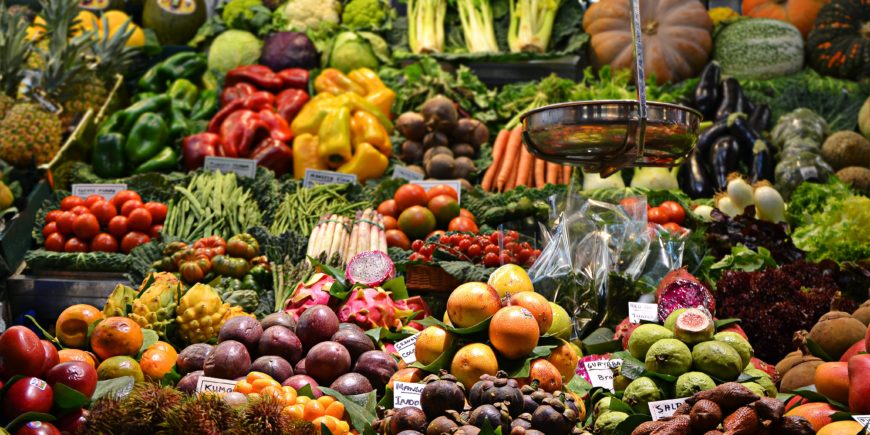When it comes to achieving optimal fitness performance, nutrition plays a crucial role. Proper fueling before, during, and after workouts can significantly impact your energy levels, endurance, and recovery. In this article, we will explore the importance of nutrition in fitness and provide valuable insights on how to fuel your workouts for optimal performance. From macronutrient balance to hydration strategies, we will delve into the key factors that contribute to your body’s ability to perform at its best. So, let’s dive in and discover how to maximize your fitness potential through strategic nutrition.
- Understand Macronutrient Balance
Maintaining a proper macronutrient balance is essential for fueling workouts effectively. Carbohydrates are the primary energy source for exercise, providing the fuel your muscles need to perform. Include complex carbohydrates like whole grains, fruits, and vegetables in your pre-workout meals to ensure sustained energy levels. Protein is crucial for muscle repair and growth, so consuming a moderate amount before and after workouts aids in recovery. Healthy fats provide long-lasting energy and support hormone production. Incorporate sources like avocados, nuts, and olive oil into your diet. - Pre-Workout Nutrition
Fueling your body before a workout is vital for optimal performance. Consume a balanced meal or snack rich in carbohydrates and protein approximately 1-3 hours before exercise. This timing allows for proper digestion and absorption of nutrients. Opt for foods that are easily digestible and low in fat to prevent discomfort during your workout. Examples include a banana with nut butter, a protein smoothie with fruits, or whole-grain toast with lean protein. - Hydration Strategies
Proper hydration is key to maintaining performance and preventing dehydration during workouts. Begin hydrating well before exercise by drinking water throughout the day. During intense workouts, especially in hot or humid conditions, consider consuming a sports drink that replenishes electrolytes lost through sweat. Monitor your urine color as a general indicator of hydration status; pale yellow is ideal. Remember to sip water during your workout to stay hydrated, especially during longer training sessions. - Fueling During Workouts
For longer and more intense workouts, consider fueling during exercise to sustain energy levels. Consume easily digestible carbohydrates, such as energy gels, sports drinks, or fruit, to provide immediate fuel for your muscles. The timing and quantity of fueling depend on the duration and intensity of your workout. Experiment with different options during training sessions to find what works best for your body. - Post-Workout Recovery Nutrition
After a workout, prioritize replenishing your body’s energy stores and supporting muscle recovery. Consume a balanced meal or snack within 30-60 minutes of exercise, focusing on carbohydrates and protein. This combination helps replenish glycogen stores and aids in muscle repair. Opt for a protein shake, Greek yogurt with fruits, or a chicken and vegetable stir-fry. Additionally, hydrate adequately to replace fluids lost through sweat. - Importance of Nutrient Timing
Nutrient timing refers to strategically consuming nutrients before, during, and after workouts to optimize performance and recovery. Timing your meals and snacks can enhance energy levels, promote muscle growth, and facilitate recovery. Aim to eat a balanced meal 1-3 hours before exercise to provide sustained energy. During longer workouts, fuel with easily digestible carbohydrates. After exercise, consume a combination of carbohydrates and protein to replenish energy stores and support muscle repair. - Individualized Approach
It’s important to remember that nutrition needs vary from person to person. Factors like body composition, fitness goals, and training intensity influence individual requirements. Experiment with different food choices and timing strategies to find what works best for you. Consider consulting a registered dietitian or sports nutritionist who can provide personalized guidance based on your specific needs and goals. - Listen to Your Body
Above all, listen to your body’s cues and adjust your nutrition accordingly. Pay attention to how different foods make you feel during workouts. If certain foods cause discomfort or affect performance negatively, consider alternative options. Stay in tune with your hunger and fullness cues, and eat intuitively to provide your body with the fuel it needs.
Proper nutrition is a vital component of maximizing your fitness potential. Understanding macronutrient balance, fueling strategies, and nutrient timing allows you to optimize performance, enhance endurance, and support recovery. Tailor your approach to individual needs and listen to your body’s signals. Remember, nutrition is a dynamic aspect of your fitness journey, so be open to experimentation and seek professional guidance when needed. By fueling your workouts strategically, you can empower your body to perform at its best and achieve your fitness goals with confidence and vitality.
Alpha Expat can help you reach your fitness and nutrition goals with bespoke solutions. Reach out to us and get to ball rolling or click on the WhatsApp button in the lower right corner.
Images: upsplash.com



